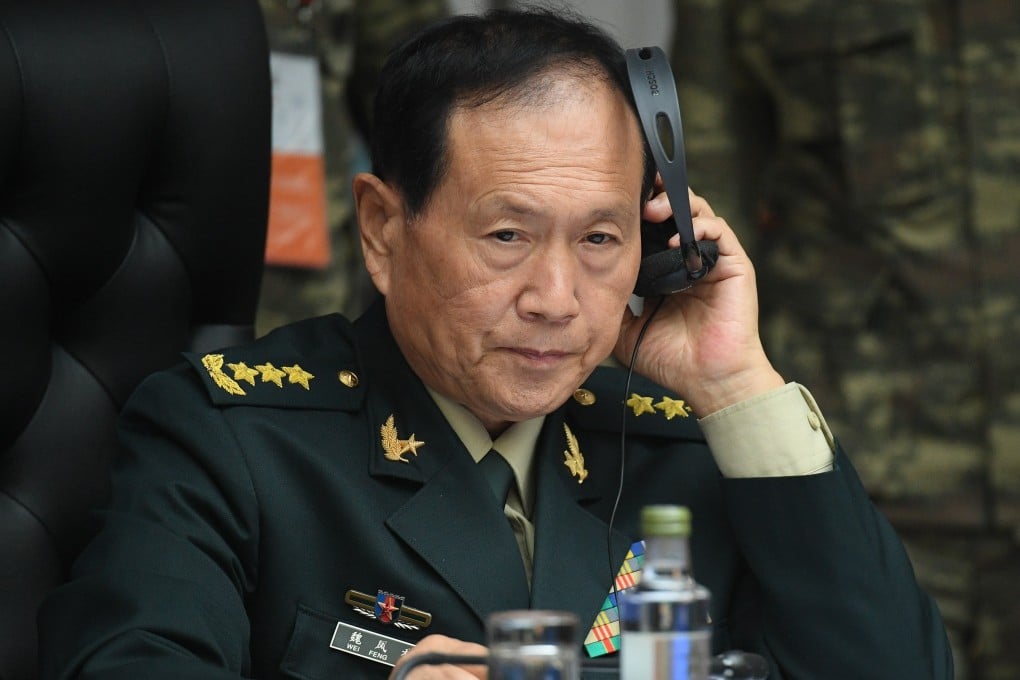Advertisement
China’s defence minister tipped to lead talks with US military, but sanctions on likely successor may pose early challenge
- Wei Fenghe is expected to lead the resumption of dialogue with his US counterpart Lloyd Austin before Li Shangfu takes over in March
- Li was sanctioned in 2018 over Russian arms sales and resolving the issue is set to be an important early test for future relations between the two sides
Reading Time:2 minutes
Why you can trust SCMP
16

China is expected to send the outgoing defence minister Wei Fenghe to represent it in the first talks with the United States military since Nancy Pelosi’s trip to Taiwan earlier this year prompted Beijing to freeze dialogue with the Americans.
One major issue China wants to resolve in the talks with Wei’s US counterpart Lloyd Austin is the sanctions imposed in 2018 on Wei’s probable successor, Li Shangfu.
Li, a general who was promoted to the Central Military Commission last month, is in line to succeed Wei in March next year. However, Li was sanctioned over China’s purchase of Russian Su-35 combat jets and S-400 air defence missile systems when he was director of China’s Equipment Development Department.
Advertisement
The two countries are expected to resume talks, including on military matters, following the meeting between presidents Joe Biden and Xi Jinping on the Indonesian island of Bali on Monday.
Afterwards Biden told a news briefing that Austin and national security adviser Jake Sullivan would “be engaging with their counterparts from China”.
Advertisement
Beijing suspended dialogues on defence, climate change and cooperation on fighting the international drug trade after the US House speaker’s visit to Taiwan in August, which China regarded as a major breach of its sovereignty.
“Both sides will feel embarrassed if Austin needs to talk with Li, who is still barred from conducting business with American officials,” said Zhou Chenming, a researcher from the Yuan Wang military science and technology think tank in Beijing.
Advertisement
Select Voice
Choose your listening speed
Get through articles 2x faster
1.25x
250 WPM
Slow
Average
Fast
1.25x